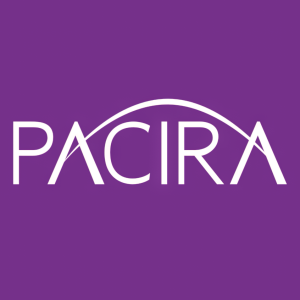Centers for Medicare and Medicaid Propose New Reimbursement for EXPAREL in All Outpatient Surgical Environments Beginning January 1, 2025
Rhea-AI Summary
The Centers for Medicare and Medicaid Services (CMS) have proposed a new reimbursement rule for 2025, extending separate Medicare payments to non-opioid pain management drugs, including Pacira BioSciences' EXPAREL, in both ambulatory surgical centers (ASC) and hospital outpatient settings (HOPD). This proposal is part of the NOPAIN Act, included in the Consolidated Appropriations Act of 2023. If finalized, the rule will take effect on January 1, 2025. The reimbursement rates for non-opioid drugs will be set at average sales price (ASP) plus 6%. The proposed rate for EXPAREL is $1.41 per billing unit. EXPAREL is approved for local and regional analgesia for various surgical procedures and has been used in over 14 million patients in the U.S.
Positive
- CMS proposes new reimbursement for EXPAREL in both ASC and HOPD settings starting January 1, 2025.
- EXPAREL to receive separate Medicare payment at ASP + 6%, proposed rate $1.41 per billing unit.
- EXPAREL recognized as one of only six qualifying non-opioid drugs for postsurgical pain under NOPAIN Act.
Negative
- Proposed payment rates, including EXPAREL's $1.41 per billing unit, are subject to change and may differ in the final rule.
News Market Reaction 1 Alert
On the day this news was published, PCRX gained 7.23%, reflecting a notable positive market reaction.
Data tracked by StockTitan Argus on the day of publication.
-- Proposed Hospital Outpatient Prospective Payment and Ambulatory Surgical Center Payment System Rule extends separate payment from ambulatory surgical centers to include the hospital outpatient environment –
-- Rule implements the NOPAIN Act, signed into law as part of the Consolidated Appropriations Act of 2023 --
TAMPA, Fla., July 10, 2024 (GLOBE NEWSWIRE) -- Pacira BioSciences, Inc. (NSDQ: PCRX), the industry leader in its commitment to non-opioid pain management and regenerative health solutions, today announced that the Centers for Medicare and Medicaid Services (CMS) has issued its proposed Hospital Outpatient Prospective Payment System and Ambulatory Surgical Center Payment System rule for 2025. In the proposed rule, EXPAREL® (bupivacaine liposome injectable suspension) is one of six covered non-opioids—two of which are specific to ophthalmology— qualifying for separate Medicare reimbursement in both the ambulatory surgical center (ASC) and hospital outpatient (HOPD) settings. Pending finalization, this policy would go into effect beginning January 1, 2025.
The proposed rule reflects impending implementation of the Non-Opioids Prevent Addiction in the Nation (NOPAIN) Act, which mandates separate CMS payment for qualifying non-opioid drugs and devices across HOPD and ASC settings. The law was passed as part of the Consolidated Appropriations Act of 2023.
“Following several years of advocacy for reimbursement policy reform to allow increased patient and provider access to non-opioids, we are pleased to see EXPAREL included as one of only six qualifying non-opioid drugs to treat postsurgical pain in the proposed rule,” said Frank D. Lee, Chief Executive Officer of Pacira. “As the only covered single-dose product approved for both local and regional analgesia across surgical procedures, we believe this new reimbursement—pending finalization—will offer clinicians increased ability to utilize a best-in-class option for achieving long-lasting non-opioid pain control with an increased ability to transition to the outpatient environment.”
Proposed Medicare payment rates for covered non-opioid drug products—as outlined in the proposed rule—equate to average sales price (ASP) +
The six products and associated reimbursement rates included in the rule are as follows:
| Non-Opioid Drug | Proposed Separate CMS Payment Rate (Per Billing Unit)* |
| EXPAREL | |
| Zynrelef | |
| Xaracoll | |
| Ketorolac tromethamine injection | |
| Dextenza | |
| Omidria |
*Payment rates given in the proposed rule are subject to change and may not be the same payment rate listed in the final rule later this year.
EXPAREL is indicated to produce postsurgical local analgesia via infiltration in patients aged 6 years and older and regional analgesia in adults via an interscalene brachial plexus nerve block, sciatic nerve block in the popliteal fossa, and an adductor canal block. Safety and efficacy have not been established in other nerve blocks. It has been used in over 14 million patients across the United States to date.
To view the preliminary rule in its entirety, visit the Federal Register.
About Pacira BioSciences
Pacira BioSciences, Inc. (Nasdaq: PCRX) is committed to providing a non-opioid option to as many patients as possible to redefine the role of opioids as rescue therapy only. The company is also developing innovative interventions to address debilitating conditions involving the sympathetic nervous system, such as cardiac electrical storm, chronic pain, and spasticity. Pacira has three commercial-stage non-opioid treatments: EXPAREL® (bupivacaine liposome injectable suspension), a long-acting, local analgesia currently approved for postsurgical pain management; ZILRETTA® (triamcinolone acetonide extended-release injectable suspension), an extended-release, intra-articular, injection indicated for the management of osteoarthritis knee pain; and ioveraº®, a novel, handheld device for delivering immediate, long-acting, drug-free pain control using precise, controlled doses of cold temperature to a targeted nerve. To learn more about Pacira, including the corporate mission to reduce overreliance on opioids, visit www.pacira.com.
About EXPAREL®
EXPAREL (bupivacaine liposome injectable suspension) is indicated to produce postsurgical local analgesia via infiltration in patients aged 6 years and older, and postsurgical regional analgesia via an interscalene brachial plexus block in adults, a sciatic nerve block in the popliteal fossa in adults, and an adductor canal block in adults. The safety and effectiveness of EXPAREL have not been established to produce postsurgical regional analgesia via other nerve blocks besides an interscalene brachial plexus nerve block, a sciatic nerve block in the popliteal fossa, or an adductor canal block. The product combines bupivacaine with multivesicular liposomes, a proven product delivery technology that delivers medication over a desired time period. EXPAREL represents the first and only multivesicular liposome local anesthetic that can be utilized in the peri- or postsurgical setting. By utilizing the multivesicular liposome platform, a single dose of EXPAREL delivers bupivacaine over time, providing significant reductions in cumulative pain scores with up to a 78 percent decrease in opioid consumption; the clinical benefit of the opioid reduction was not demonstrated. Additional information is available at www.EXPAREL.com.
Important Safety Information about EXPAREL for Patients
EXPAREL should not be used in obstetrical paracervical block anesthesia. In studies in adults where EXPAREL was injected into a wound, the most common side effects were nausea, constipation, and vomiting. In studies in adults where EXPAREL was injected near a nerve, the most common side effects were nausea, fever, and constipation. In the study where EXPAREL was given to children, the most common side effects were nausea, vomiting, constipation, low blood pressure, low number of red blood cells, muscle twitching, blurred vision, itching, and rapid heartbeat. EXPAREL can cause a temporary loss of feeling and/or loss of muscle movement. How much and how long the loss of feeling and/or muscle movement depends on where and how much of EXPAREL was injected and may last for up to 5 days. EXPAREL is not recommended to be used in patients younger than 6 years old for injection into the wound, for patients younger than 18 years old for injection near a nerve, and/or in pregnant women. Tell your health care provider if you or your child has liver disease, since this may affect how the active ingredient (bupivacaine) in EXPAREL is eliminated from the body. EXPAREL should not be injected into the spine, joints, or veins. The active ingredient in EXPAREL can affect the nervous system and the cardiovascular system; may cause an allergic reaction; may cause damage if injected into the joints; and can cause a rare blood disorder.
Forward-Looking Statements
Any statements in this press release about Pacira’s future expectations, plans, trends, outlook, projections and prospects, and other statements containing the words “anticipate,” “believe,” “can,” “could,” “estimate,” “expect,” “intend,” “may,” “plan,” “project,” “should,” “will,” “would,” and similar expressions, constitute forward-looking statements within the meaning of Section 21E of the Securities Exchange Act of 1934, as amended (the “Exchange Act”), and the Private Securities Litigation Reform Act of 1995, including, without limitation, statements related to our growth and future operating results and trends, our strategy, plans, objectives, expectations (financial or otherwise) and intentions, future financial results and growth potential, including our plans with respect to the repayment of our indebtedness, anticipated product portfolio, development programs, patent terms, development of products, strategic alliances and intellectual property and other statements that are not historical facts. For this purpose, any statement that is not a statement of historical fact should be considered a forward-looking statement. We cannot assure you that our estimates, assumptions and expectations will prove to have been correct. Actual results may differ materially from those indicated by such forward-looking statements as a result of various important factors, including risks relating to, among others: the integration of our new chief executive officer; risks associated with acquisitions, such as the risk that the acquired businesses will not be integrated successfully, that such integration may be more difficult, time-consuming or costly than expected or that the expected benefits of the transaction will not occur; our manufacturing and supply chain, global and U.S. economic conditions (including inflation and rising interest rates), and our business, including our revenues, financial condition, cash flow and results of operations; the success of our sales and manufacturing efforts in support of the commercialization of EXPAREL, ZILRETTA and iovera°; the rate and degree of market acceptance of EXPAREL, ZILRETTA and iovera°; the size and growth of the potential markets for EXPAREL, ZILRETTA and iovera° and our ability to serve those markets; our plans to expand the use of EXPAREL, ZILRETTA and iovera° to additional indications and opportunities, and the timing and success of any related clinical trials for EXPAREL, ZILRETTA and iovera°; the commercial success of EXPAREL, ZILRETTA and iovera°; the related timing and success of U.S. Food and Drug Administration supplemental New Drug Applications and premarket notification 510(k)s; the related timing and success of European Medicines Agency Marketing Authorization Applications; our plans to evaluate, develop and pursue additional product candidates utilizing our proprietary multivesicular liposome (“pMVL”) drug delivery technology; the approval of the commercialization of our products in other jurisdictions; clinical trials in support of an existing or potential pMVL-based product; our commercialization and marketing capabilities; our ability to successfully complete capital projects; the outcome of any litigation; the ability to successfully integrate any future acquisitions into our existing business; the recoverability of our deferred tax assets; assumptions associated with contingent consideration payments; the anticipated funding or benefits of our share repurchase program; and factors discussed in the “Risk Factors” of our most recent Annual Report on Form 10-K and in other filings that we periodically make with the Securities and Exchange Commission (the “SEC”). In addition, the forward-looking statements included in this press release represent our views as of the date of this press release. Important factors could cause actual results to differ materially from those indicated or implied by forward-looking statements, and as such we anticipate that subsequent events and developments will cause our views to change. Except as required by applicable law, we undertake no intention or obligation to update or revise any forward-looking statements, whether as a result of new information, future events or otherwise, and readers should not rely on these forward-looking statements as representing our views as of any date subsequent to the date of this press release.







